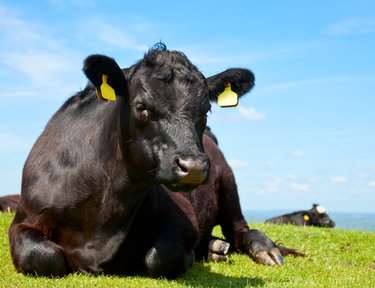Agency says nearly 50 properties are under quarantine and movement control
By Diego Flammini
Assistant Editor, North American Content
Farms.com
The Canadian Food Inspection Agency has released an update on the bovine TB investigations ongoing in parts of Alberta and Saskatchewan.
According to the update, six confirmed cases of bovine TB remain. The cases are from one herd, located on 18 premises. CFIA says there’s approximately 50 premises under quarantine and movement controls.

“Most of these premises are located in Alberta, with no more than five in Saskatchewan,” the December 7 update said. “These numbers will continue to change as the investigation continues. The total number of animals quarantined by this investigation is currently over 26,000.”
Back in September, CFIA discovered a cow with the disease on Brad Osadczuk’s ranch near Jenner, Alberta. Since then, the disease spread to cattle in Saskatchewan.
All farms under quarantine will undergo on-farm testing, scheduled for completion in early January 2017.
CFIA said ts efforts to communicate with producers continue. Veterinarians are meeting with all affected producers to answer any questions, and compensation teams helping producers develop financial solutions.
CFIA is participating in conference calls with industry associations twice weekly and has an industry liaison in the Western Area Emergency Operations Centre.
Farms.com has covered the bovine TB investigations in detail, including the federal government’s response.